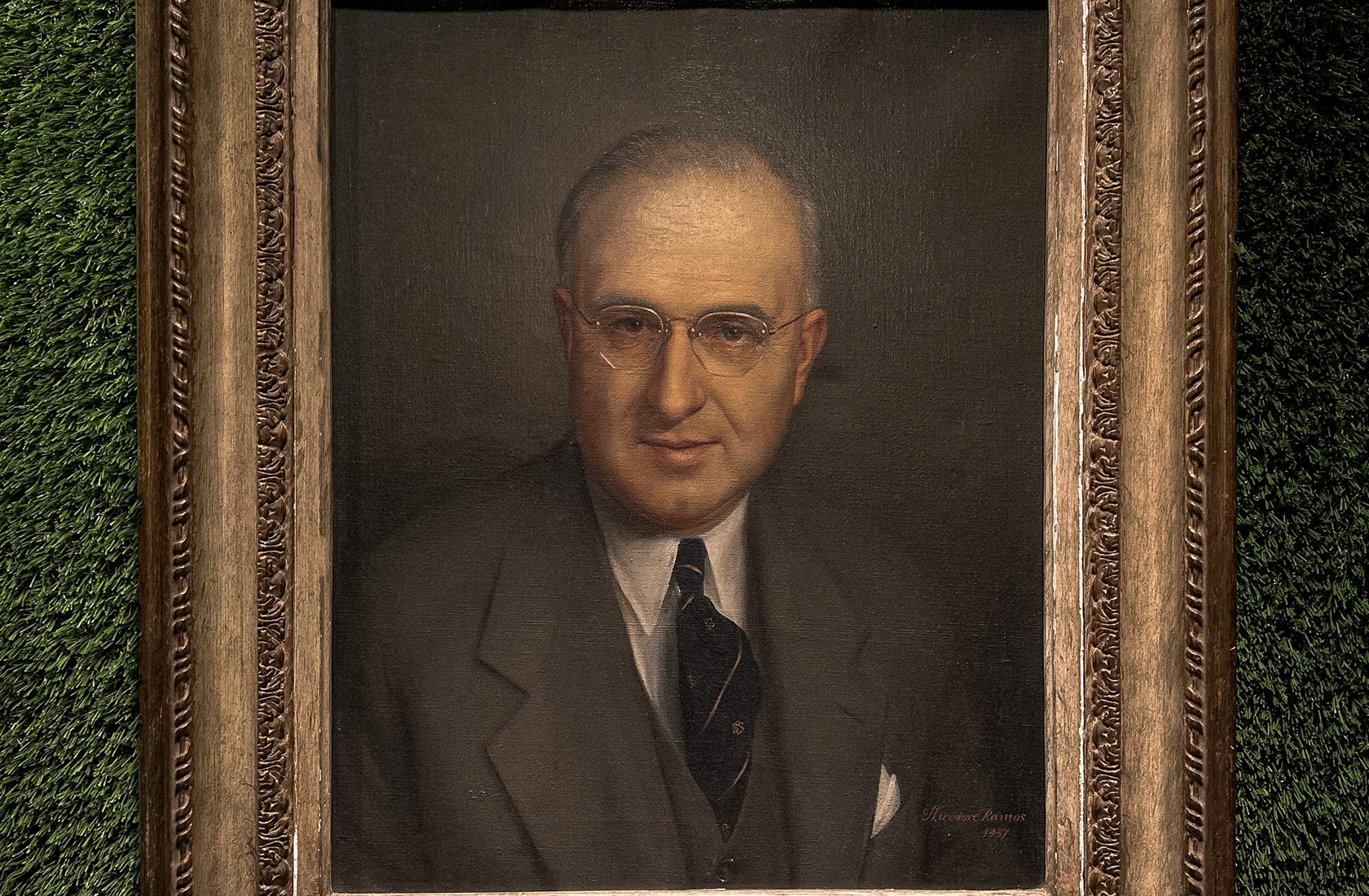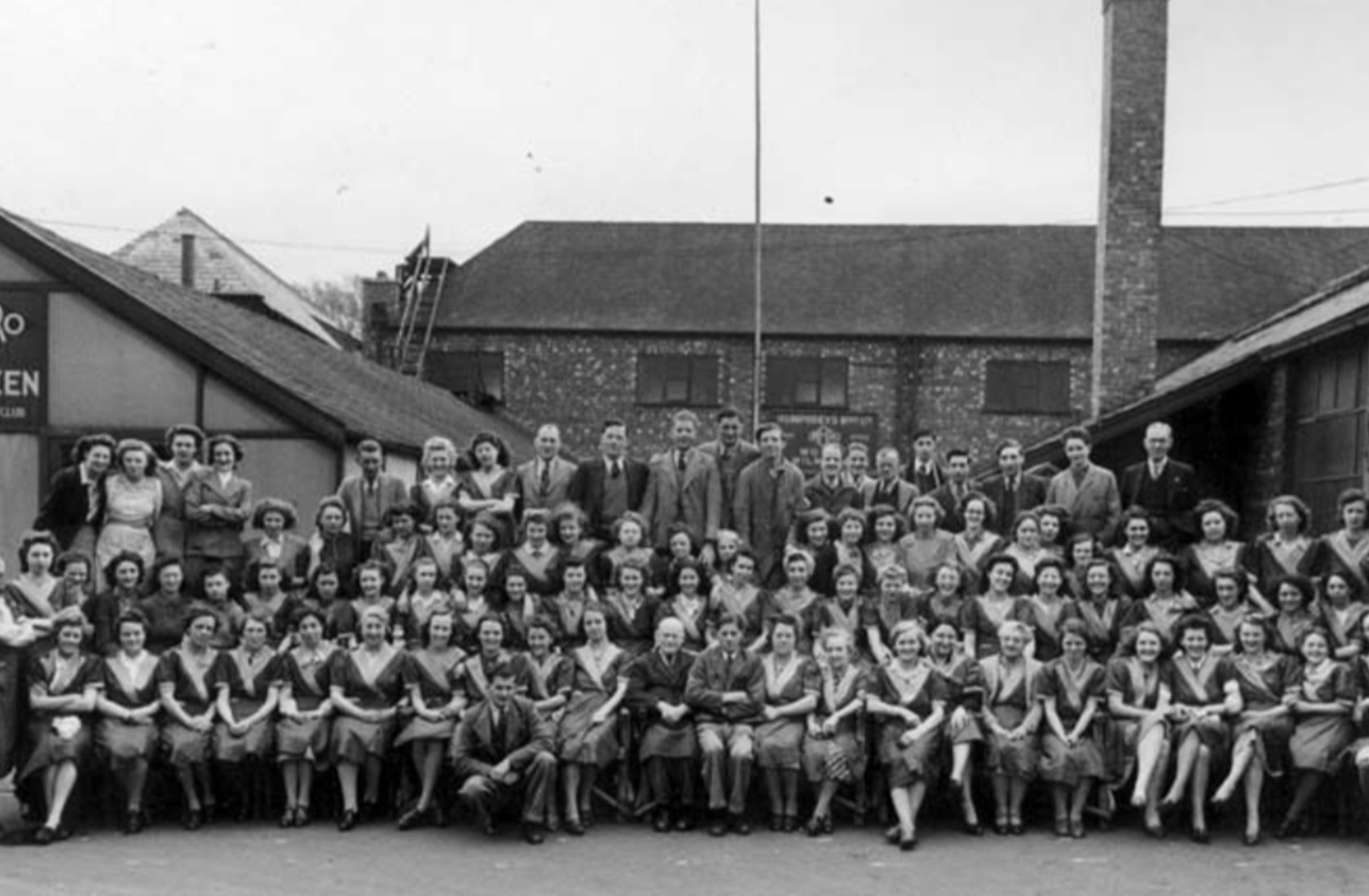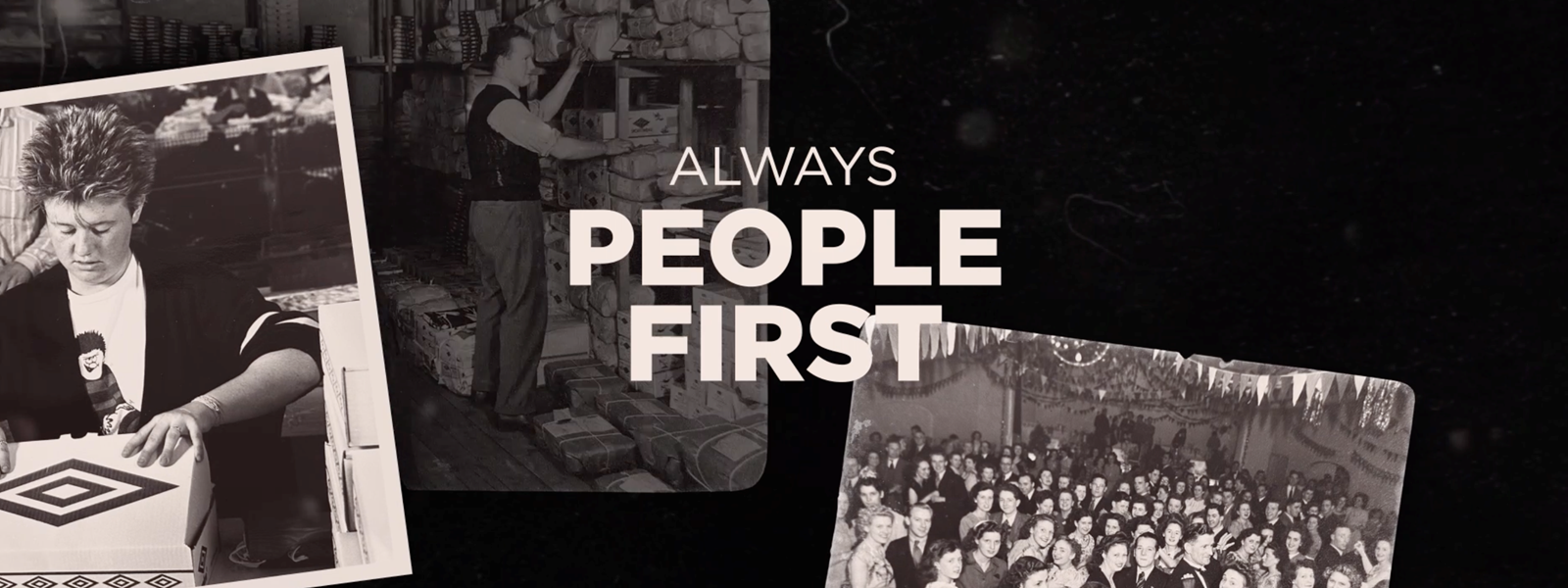Always with distinction
Born in a sleepy Cheshire village, Harold Humphreys was always a restless child. And more likely in trouble than in his teacher’s good books, no-one was surprised when he left schooling in pursuit of some real work.

Aged just 13 and 3/4, Harold landed his first job polishing bannisters at a Manchester fashion house. Seven floors up, seven floors down, it taught him everything he needed to know about taking the next step. Just being around such professionals, he developed an appreciation of the details, quality, and craftsmanship of fine tailoring.
It was then that he saw his chance.
Convincing his brother Wallace to start a small fashion business with him, Harold led with vision, tenacity and pluck from day one. By the age of 22, he’d established a philosophy built on hard work, a love for family and a deep competitive spirit. Core values which, through cultural changes and upheaval, the company always returned to — helping them constantly innovate, win fans and keep their enemies at bay.

But while they were growing their name, outside their walls, the country had found a new love… football. With stadiums filled to the brim, Harold spotted another opportunity, pivoting from classic retail fashion to the wholesale production of “sportswear”.
In improving the standards of kits and providing an unrivalled quality of product, he knew if he got this one right, he could outfit a world of footballers in proper style. In the same way he’d seen tailors catering to individual needs growing up, he knew his Umbro could satisfy every team. Everywhere.
And the hard work paid off. With the sensibilities of Savile Row, the heritage of centuries of British industrial craft and a great sense of humour, Umbro emerged as the sports tailor of distinction — with the newspapers dubbing Harold Humphreys, ”The Dior of the Football World”.
The vision of one man, and his relentless quest for quality, innovation and improvement, built a brand that is now not simply ingrained in Britain’s textile industry, but the world’s footballing history. He might not have come from much. But he amounted to plenty.








